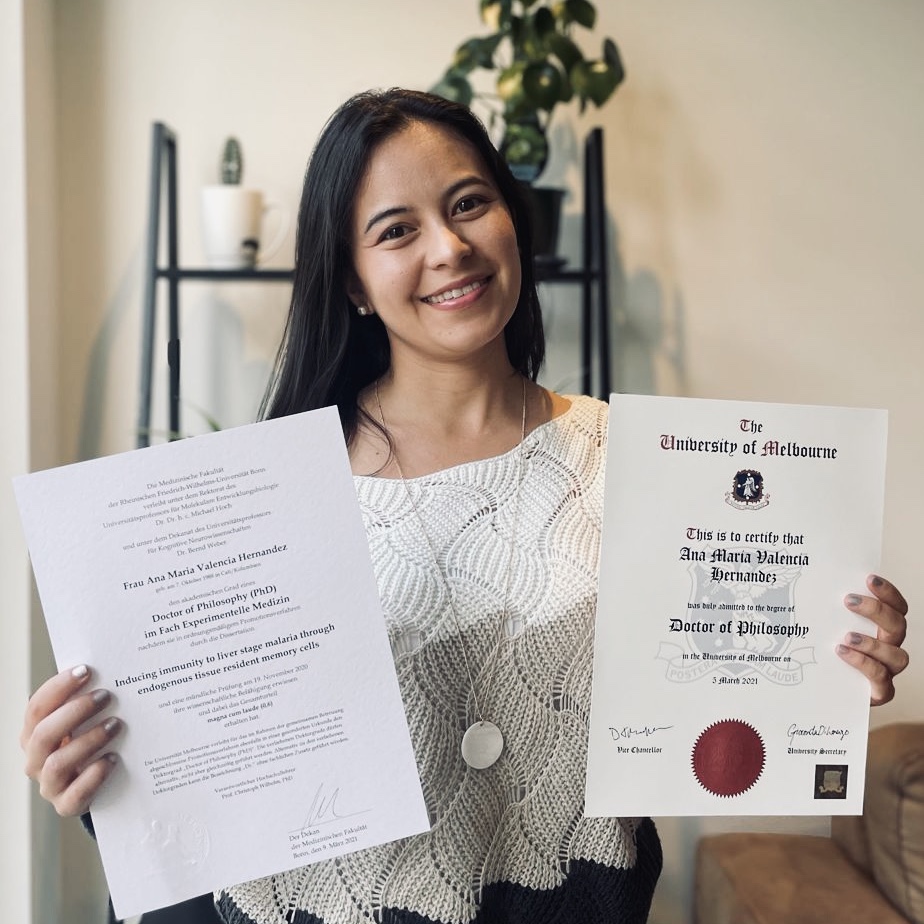After finishing my Master studies in Life Sciences in Würzburg, Germany, I was eager to do my PhD in Immunology, one of my favourite subjects during my undergraduate studies. Among the very exciting projects offered by the Bonn & Melbourne Graduate School was the opportunity to study optimizing a malaria vaccine in a murine model, a research question I found fascinating myself. I soon realised that the program was a joint PhD program between the University of Bonn and the University of Melbourne, two internationally renowned institutions.
During the first two years of my PhD, I established several collaborations within the University of Bonn and other Universities across Germany that allowed me to perform malaria experiments in mice in the research group of Dr. Winfried Barchet. During this time, I also learned several immunologic techniques and concepts important to set the foundations for my project. At the end of my second year, I joined the lab of Prof. William Heath in Melbourne, where I finished my project. For my PhD, I investigated the requirements for generating immunity mediated to malaria. The findings of my project revealed a novel peptide antigen and adjuvants that can be used to induce the formation of liver resident memory T cells capable of preventing malaria infection.
Having to move to a different country in the middle of my project was initially challenging but also a great opportunity to develop project management skills. It is important to be organised and communicate well with both of your supervisors at all times. My advice for future students who would like to join the program is to be organized and to gain a clear understanding about the program, including expectations and deadlines, and the overall timelines that might differ from a conventional, single PhD. Students also have access to a range of support measures throughout their candidature, as well as different professional developmental opportunities to enrich their PhD experience and to help with their future career development.
I really enjoyed the interaction with the other joint PhD students who became my friends. We connected and bonded over shared obstacles we faced when moving to a different continent at some stage of our PhD. I also had the opportunity to travel around Australia, a beautiful and exciting country. I also enjoyed the range of excellent seminars, workshops and conferences offered by both universities. During these events I established connections that later were important for me to join another lab as a postdoc. Currently, I work at the Peter Doherty Institute in Melbourne in the research group of Prof. James McCluskey. I investigate the role of a subset of unconventional T cells, Mucosal-associated invariant T (MAIT) cells, in the context of parasitic infections in mice and humans.
Being part of an international PhD program allowed me to learn more about the power of resilience, effective communication, and collaboration. I had the opportunity to experience a very open exchange of data and ideas, which I believe is how science grows stronger and moves forward.

Ana Maria Valencia Hernandez
"Inducing immunity to liver stage malaria through endogenous tissue resident memory cells"